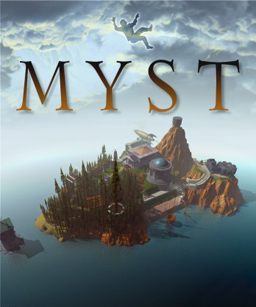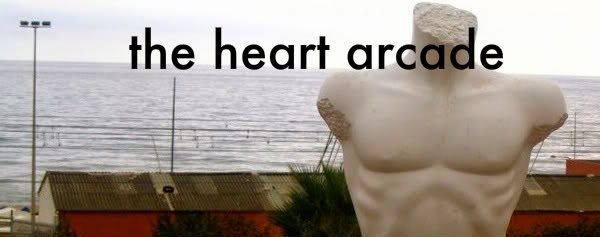
The secret theme of all creations – from the Bible to a Quentin Tarantino epic, to a level of Super Mario Brothers – is creation. How do we make things? More importantly, how do we go on making things? The persistence of these questions should be obvious to anyone who has ever hung out with artists; but the most fascinating part of it, to me at least, is how integral laziness is to the productivity that obsesses all of us, no matter how many “good” hours we manage to pack in a given day.
I get bored easily. As a childhood animal lover, my Book of Books was a binderfull of celluloid sheaths that my father brought home from work one day. The volume’s empty pages had a pleasant kerosiney smell and glossy texture, like over-tanned balloon-hides. I filled them, one by one, with the Ranger Rick magazines that I’d been collecting since I’d been old enough to demand a subscription. The issues came every four months or so, along with a tape of Northern Exposure episodes and various cooking utensils, in the bubble-wrapped care packages that my grandmother sent us from Somers, New York. I poured over them giddily before placing them, one at a time, in my binder. And from that point on I was always reading them. I brought them to school and to restaurants, where I would store the bulging compendium beneath my chair as I suffered through the meal itself, and then bring it out as soon as there was a lull.

Later, while visiting my great aunt in Maine , I remember realizing suddenly that one possible way to survive the interminable booklessness of family reunions was by imagining that I was a character in a video game, and that each detail of my surroundings (whatever level or “board” I was on/in) was therefore a challenge and opportunity for Mega Man-like personal enhancement. The world was transformed, from a flat surface to a veritable advent calendar of significance. As such, it was inherently interesting: not just a place for books, but a book itself, as readable to me as it had been for Edwards, or Emerson, or that original Mario in the depths of Bowser’s castle, Henry David Thoreau.
Henry James, whose writing stands in relation to those original side-scrollers with a revelatory vagueness of Mystian proportions, told us, “Try to be one of the people on whom nothing is lost!” In saying this, he is looking backwards to the listmaking Benjamin Franklin and forwards to the paranoid fantasies of Thomas Pynchon, who, in The Crying of Lot 49, described how truly horrible it would be to be trapped in a video game. Or a web for that matter, whose crystalline filaments are after all a metaphor of mobility only for the unmoving spider.
The internet makes Crusoes of us all – but the point here is not that Crusoe is lonely, but that his loneliness is sublimated, to an industry that sees the world as a gigantic tool, something like the cliché about the Native American and his buffalo, every part was useful. The French anthropologist/landscape artist Claude Levi-Strauss makes a similar point about the “primitive” cultures of Brazil when he points out that their language (which named every plant and animal with a precision that makes Linnaeus look like a kindergartner), like their habit of tattooing every inch of available skin, was really a very developed version of what our own culture does now with an indulgent and self-congratulatory hightechitude reminiscent of, say, Transformers: Revenge of the Fallen. The naked world must be covered against emptiness, the same way that the naked head must be covered against rain. This does not necessarily mean that you have to invent a machine for shooting clouds out of the sky.

Nights, of course, were significantly more dangerous. They left me: alright, they had to, I know - but they still left me. And though I had my books – had more of them, actually, now that I’d been sent to a school where books really were the only things that would talk to me – I found my brain and heart spinning like wheels in mud. In any examination of the malformations called “sins”, proportion begins to crop up as an antidote; but where was I going to find proportion? I was an expatriate by birth and uprooted, used to gorging myself. “Candy, anger, sleep,” I whispered, or should have. It probably would have helped to know that someone else knew what I was going through. Of the three, the last is what bothered me when I visited my family in Cairo, in their new home, their first home without me. Jet-lagged, I read through the night or wandered around the apartment trying not to trip over my sister’s new cat. One day I woke up (from a nap? Or was it the middle of the night again?) to see the sky outside churning like a cement mixer. The khamsin, or sirocco, which I watched cake a donkey standing inexplicably beneath my window with a slow layer of lard-colored dirt. The donkey didn’t move.
Of course it didn't: it didn't see any way out, didn't see any way to see a way out. Sloth, like gluttony, produces a nausea that is both spiritual (not totally sure what that word means, but hopefully you do) and physical. It is the result, rather than a preventative, of industry: not work, but rather the effort that apes the procedures of creativity without ever really managing to hit, through exploration and bravery, on any real root. It smacks of diligence, or duty; of the obeyed letter rather than the animating spirit. In my experience as a writer, there is a point in every day when we know what we should be doing. Sometimes that “should” is simply sitting down at the desk, and we don’t, because we feel like we need to research more, or write a blog entry, or read another chapter… But more often, I think, the should happens within the writing. Not knowing what we have to do isn’t depressing, so long as we have faith that whatever we’re doing will eventually reveal that; what’s depressing is when we know what we have to do, secretly, but keep deciding not to do it. We hold back by telling ourselves we’ve gone forward. Isaac Babel (another devotee of patience) put it in a way that no amount of exposition can exhaust: “One’s fingertips must grasp the key, gently warming it. And then the key must be turned once, not twice.” Sloth is what you feel when you’re turning the key so much, and so fast, that the gears are stripped.
The secret insight of Christian theology (and others probably: I'm only trying to say what I know) is the deep sterility of sin: the way it knocks us out of the very world that it promises to open. The question, then, is how we get back in – and not once, but again and again, since by the time we realize the value of what we’ve lost, it will probably be gone forever, at least in that form. In Pynchon's seemingly-closed riddle of a universe, the underground postal service is called WASTE. Henry James would be appalled. But ignoring this reality provokes, I think, a disappointment with life that leads us to a watching-TV-for-9-straight-hours despondency. It is one of our culture's best kept secrets that it cultivates this state at the same time that it pretends to relieve it, by eliminating waste. But there is no eliminating waste, at least for us. For God - or whatever you want to put in that place - maybe. But then the next question to ask is, is God the most bored being in the universe, or the most interested?


